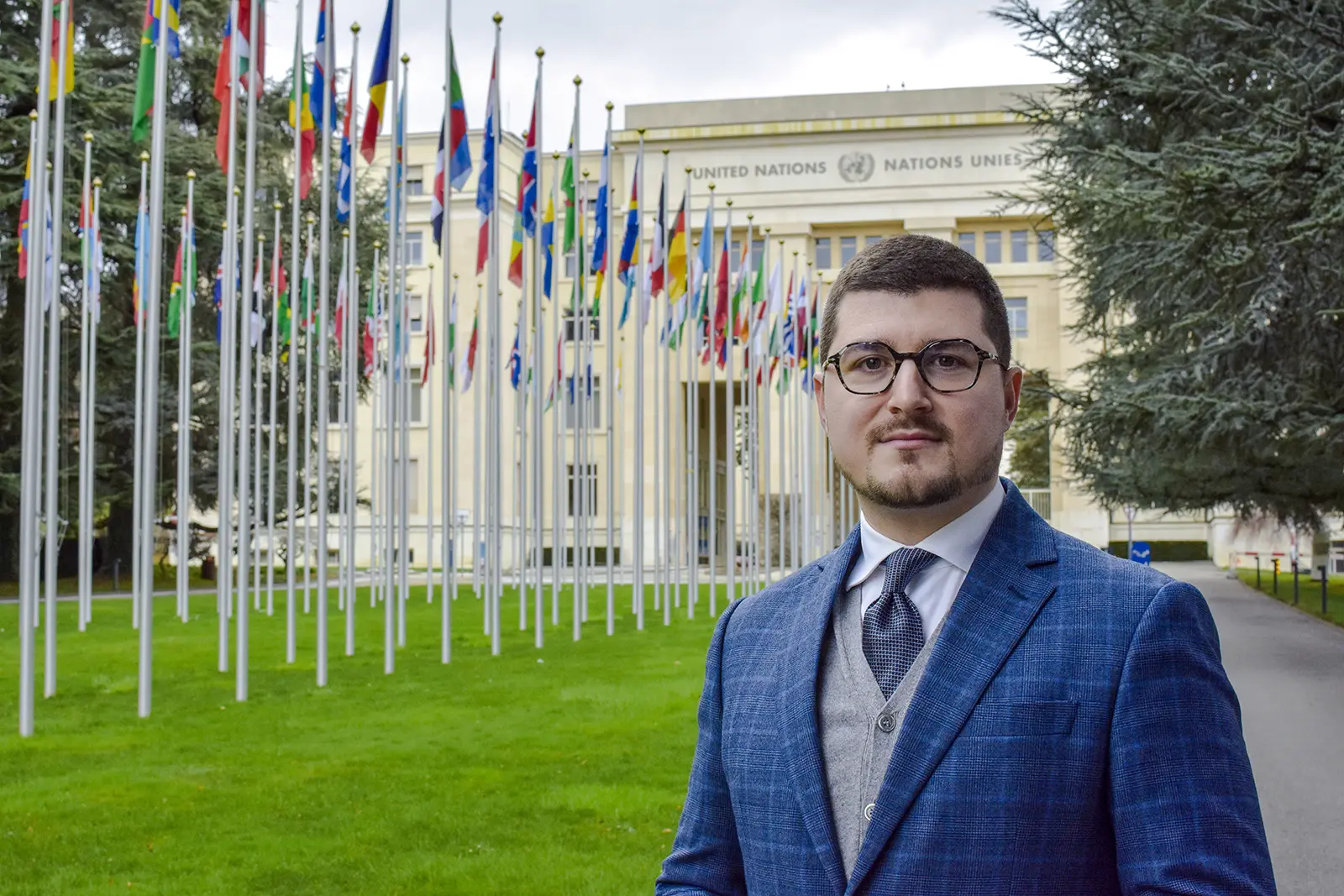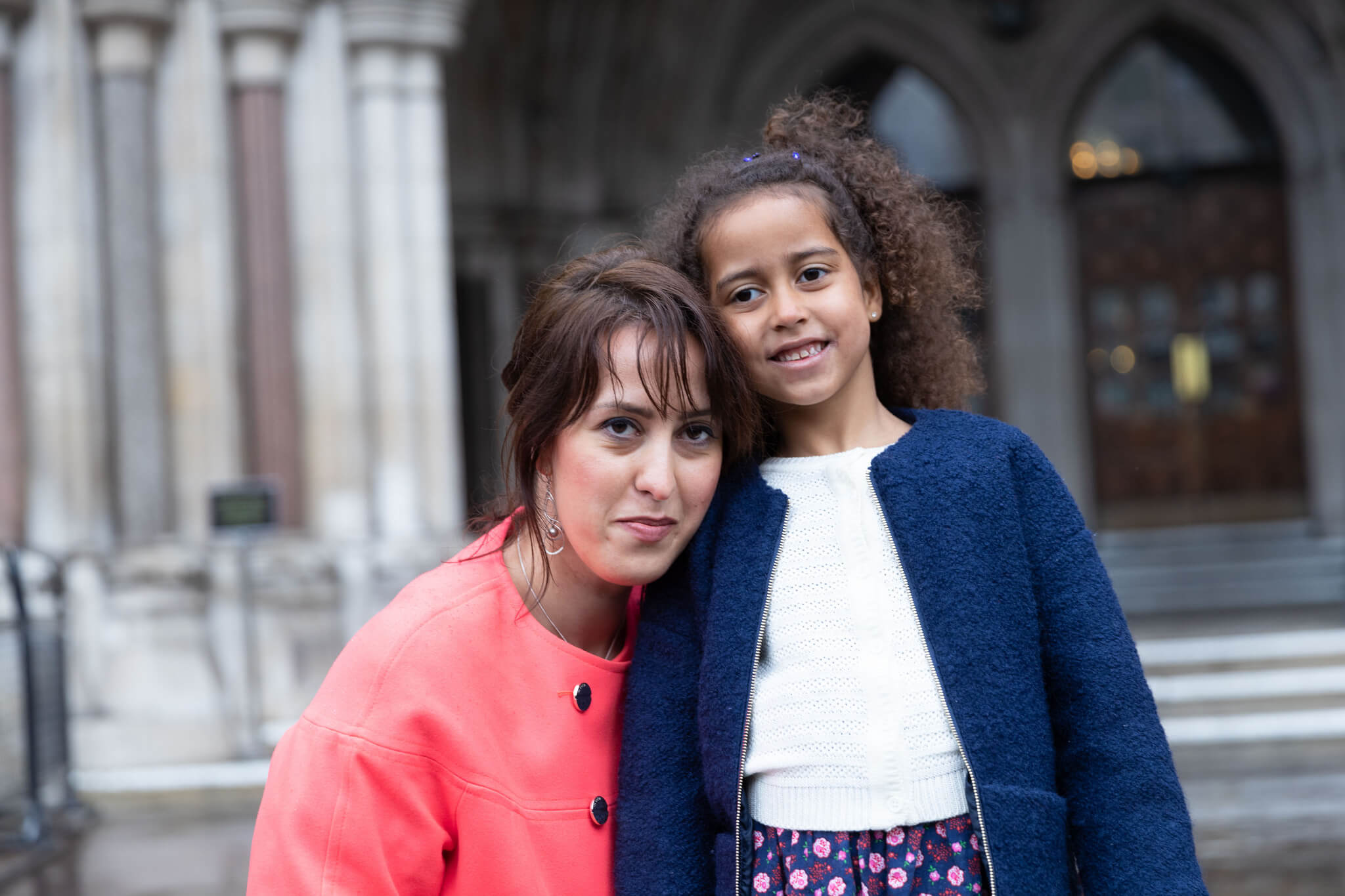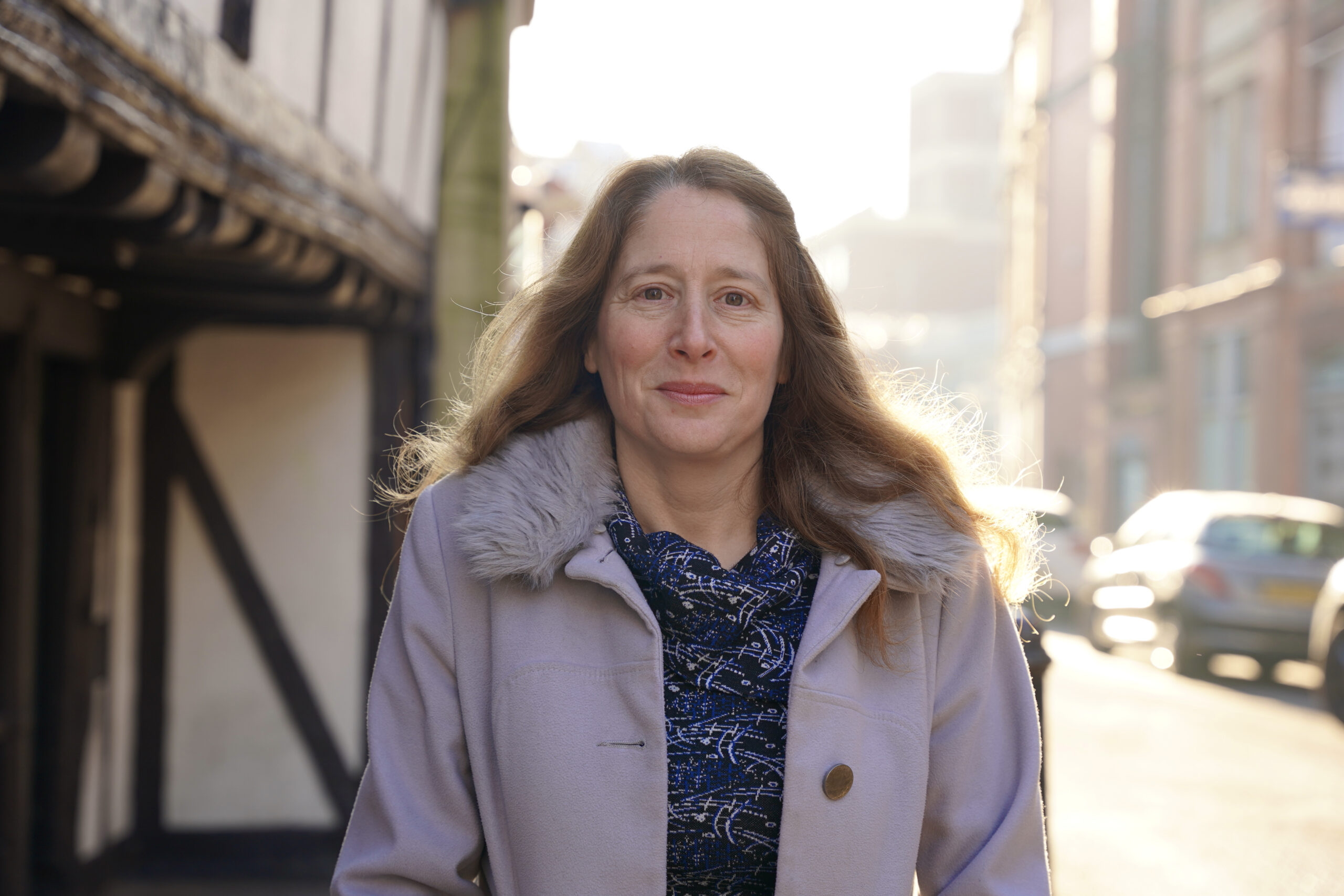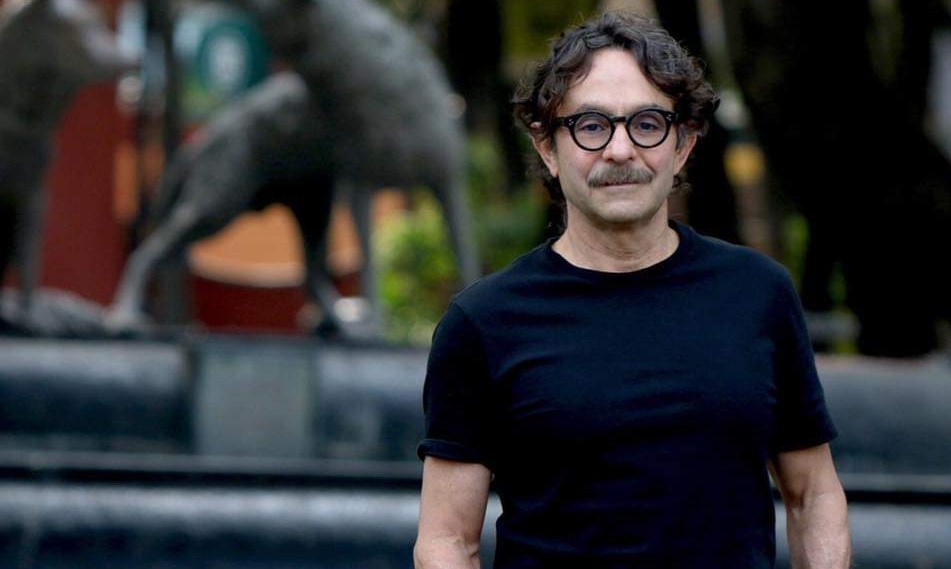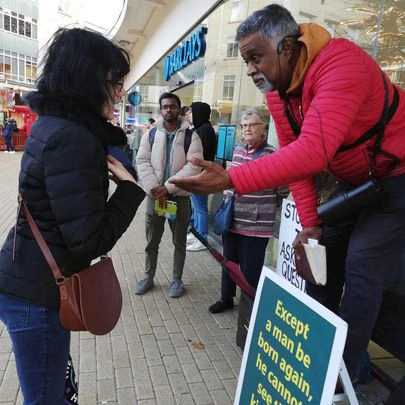Christian-convert and Pastor Youssef Ourahamane appealing “illegal worshipping” conviction before Algerian court.
Continue readingNigerian reverend and wife imprisoned for over three years acquitted of wrongdoing for helping young girl to safety
The Gangases had been imprisoned for over three years after facing false accusations of kidnapping and converting the girl to Christianity.
Continue readingChallenging Nigeria university bans against Christian fellowship on campus
Challenges filed against state and federal universities in Katsina State, Nigeria, for “indefinitely prohibiting” Christian fellowship and worship on campus.
Continue readingRevised WHO Pandemic Agreement draft still implies “free speech is a threat to public health” as negotiations resume today
- Updated negotiating text for legally binding agreement requires states to cooperate in “preventing” misinformation and disinformation
- As final “two-week negotiating marathon” starts today, ADF International advocates for the removal of language detrimental to free speech
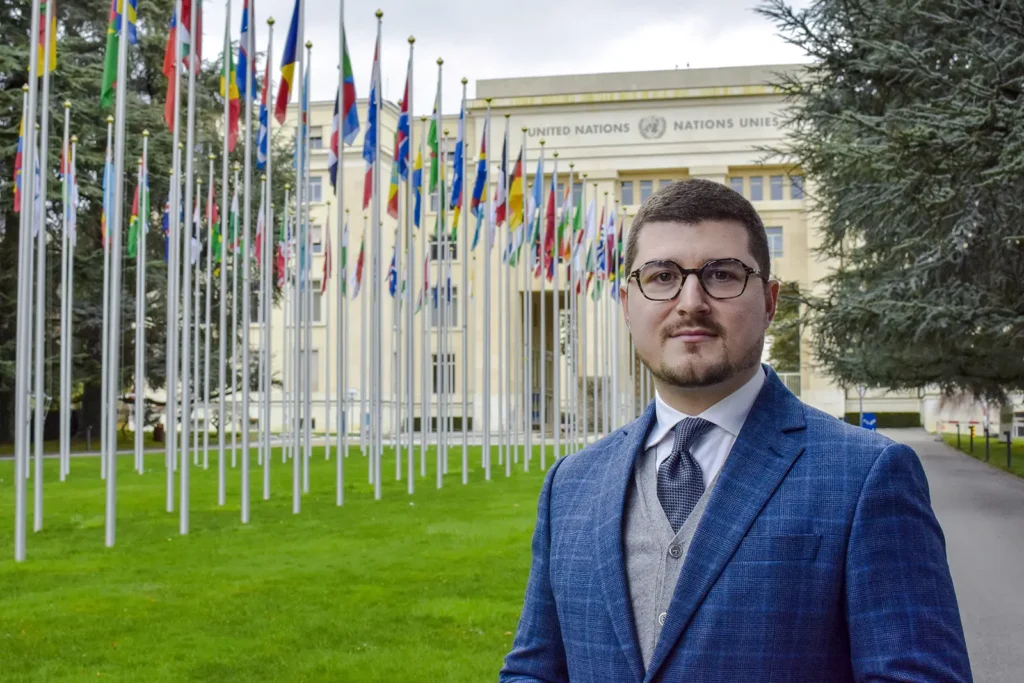
GENEVA (18 March 2024) – Member States resume negotiations today at the World Health Organization on the final draft of the Pandemic Agreement. The previous draft of the legally binding text received worldwide criticism for potentially enabling government crackdowns on free speech in the name of pandemic prevention, preparedness, and response.
If adopted in its current form, the Pandemic Agreement would obligate parties to “cooperate, in accordance with national laws, in preventing misinformation and disinformation”, granting individual states the discretion to define which information fits within these categories, and how far they could go in censoring alleged mis- or disinformation.
The final text is anticipated to be adopted in May and would serve as a critical tool for combating future pandemic threats.
“The revised negotiating text for the WHO Pandemic Agreement continues to misrepresent the human right to freedom of expression as a threat to public health. States have a duty to guarantee access to transparent, timely, and accurate information, especially during health emergencies. This, however, does not grant governments a license to censor lawful speech under the pretext of shielding the public from information arbitrarily labeled as ‘misinformation’ or ‘disinformation’, warns Giorgio Mazzoli, Director of UN Advocacy with ADF International.
“The revised negotiating text for the WHO Pandemic Agreement continues to misrepresent the human right to freedom of expression as a threat to public health“
- Giorgio Mazzoli, Director of UN Advocacy with ADF International.
Treaty will serve as a blueprint for future pandemics
While the updated draft of the Pandemic Agreement retains nebulous and undefined language on mis- and disinformation, it has removed the mandate for states to “manage” so-called “infodemics”. The term was loosely defined as including, inter alia, “too much information” during a disease outbreak causing “confusion” as well as “mistrust” in health authorities, irrespective of the information’s accuracy.
Human rights advocates have welcomed this revision, but emphasize that more must be done to align the provisions of the WHO Pandemic Agreement with global legal standards protecting freedom of expression.
“Freedom of expression, including the right to seek and receive information, is essential to ensure scrutiny and accountability over critical public health decisions. Lacking free access to information, people are unable to assess the lawfulness and effectiveness of the actions undertaken by authorities,” continued Mazzoli.
“If adopted in its present form, the WHO Pandemic Agreement would set a dangerously low standard of regard for freedom of expression. Any government could refer to its obligations under the treaty to unduly restrict free speech in the name of preventing alleged misinformation or disinformation among the population”, he added.
Next steps: final negotiations and adoption
The current updated text will serve as the basis for negotiations scheduled for 18-28 March 2024. Negotiations on this revised draft are expected to result in a consensus text, whose final adoption is anticipated to take place at the World Health Assembly at its 77th Session in May 2024.
Considering its importance and binding nature, the process for negotiating the text – which began in March 2023 – has been exceptionally fast compared to typical timelines. However, the slower-than-expected pace of negotiations has prompted some Member States to question the feasibility of adopting the agreement in May. Once adopted, the Pandemic Agreement will enter into force after it has been ratified by forty countries.
“Everyone agrees that life is precious and that states have an interest in protecting public health. But some of the most grave and systematic human rights abuses of the last century unfolded during public emergencies and we must be vigilant to protect hard-won rights – especially in times of crisis. When it comes to vague and undefined concepts such as “misinformation” or “disinformation”, the currently proposed cure is far worse than the disease,” Mazzoli concluded.
VIDEO: Scottish buffer zones bill is “patronising” and unhelpful, woman who recieved help from pro-life volunteers tells parliament
- Alina Dulgheriu, who accepted an offer of support to continue her pregnancy from a pro-life volunteer near an abortion facility, asks Scottish parliament to protect the right to offer help to women in crisis
- Scottish proposal would ban prayer and pro-life speech even inside houses within 150m or more of abortion facilities
EDINBURGH (12 March 2024) – Alina Dulgheriu, a mother who recieved help at her point of critical need outside an abortion facility, has asked the Scottish government to consider vulnerable women before censoring pro-life help in Scotland.
Dulgheriu credits pro-life volunteers with empowering her to make her wanted choice to continue her pregnancy despite financial and social pressures placed on her to abort.
She has since established the “Be Here For Me” campaign, collecting testimonies of other women who have been positively impacted by the presence and services offered by charitable pro-life volunteers. Dulghieriu called on the Scottish government to allow volunteers to continue the work that she views as “much needed” in order to support vulnerable women.
“I didn’t want an abortion but I was abandoned by my partner, my friends and society. My financial situation at the time would have made raising a child very challenging. Thanks to the help I was offered by a group outside of a clinic before my appointment, my daughter is here today. Stopping people from offering much-needed services and resources for women in my situation is wrong. Let them help,” Alina Dulgheriu, spokesperson for Be Here For Me, commented on the implementation of censorial “buffer zones”.
"Removing the option to receive help to keep a child...is deeply patronising and assumes that women can't make a decision for ourselves, or that we might choose the wrong option."
- Alina Dulgheriu, spokesperson for Be Here for Me, a group of mothers campaigning against buffer zone censorship
Addressing parliamentarians on the Health, Social Care and Sport committee, Dulgheriu explained that the buffer zones bill would be “deeply patronising” to women by denying them an opportunity to hear and consider options to continue their pregnancy with charitable support.
“It is worrying that we will consider denying vulnerable woman access to potential life-changing, life changing information – especially when facing one of the most challenging decision of their lives that could have lasting ramification on their mental and physical health.
Removing the option to receive help to keep a child in case we feel offended is deeply patronising and assumes that woman can’t make a decision for ourselves or that we might choose the wrong option.
My case is not a one-off. There are many hundreds of women just like me who have benefitted from this support. Yet we are all too often ignored.”

In a Q&A with Members of the Scottish Parliament, Dulgheriu went on to explain that the help she had recieved from pro-life volunteers had not been offered by the abortion provider whom she had asked about her options.
Promote “tolerance, not censorship”, asks woman arrested for silent prayer
The charitable volunteer who was arrested for praying silently in a controversial “buffer zones” case in Birmingham will also testified to Holyrood about her experience of being prosecuted for a “thoughtcrime”.
Isabel Vaughan-Spruce was seen being arrested on a viral video last winter when she said she “might be praying inside [her] head”. She was charged with “engaging in an act that is intimidating to service users” within the buffer zone of an abortion clinic – despite the clinic having been closed.
She was later fully acquitted at Birmingham Magistrates Court after the prosecution could offer no evidence as to her thoughts.
Addressing the parliamentarians, Vaughan-Spruce said:
“After having to clear my name in court I was rearrested two weeks later being told ‘my prayers were an offence’. I’m concerned that this will end up happening in Scotland. Nobody should be punished for a “thoughtcrime” – yet this proposed legislation could easily allow that to happen.
The buffer zone has created a huge amount of division in our area, and many locals tell me that they are now fearful to share their beliefs with their neighbours. The community has become polarised and the buffer zone has fostered intolerance.
“I wholly recommend that the Scottish government protect freedom of thought and of speech in Scotland, and promote tolerance rather than censorship.”
"I wholly recommend that the Scottish government protect freedom of thought and of speech in Scotland, and promote tolerance rather than censorship."
- Isabel Vaughan-Spruce, who was criminally charged for breaking a "buffer zone" regulation after she prayed silently in her mind near an abortion facility in Birmingham. Isabel was tried and found innocent. ADF UK supported her legal defence.
The bill has recieved criticism from free speech advocates, who raise concern that the vague and ambiguous language of the text could crack down on peaceful conversation and even thought.
“Scotland’s buffer zone bill is one of the most extensive crackdowns on pro-life thought and speech we’ve seen. As drafted, it could even ban prayer and peaceful pro-life speech within homes if they are situated sufficiently near an abortion facility. The proposal would also allow the 150m distance of the buffer zone to be expanded by local authorities to an unlimited extent. It is vital that the parliament take heed of the stories of Alina and Isabel, and uphold their duty to protect freedom of thought, offers of help, and consensual conversation,” said Lois McLatchie Miller, spokesperson for ADF UK in Scotland.
Images for free use in print or online in relation to this story only
PICTURED: Isabel Vaughan-Spruce; Alina Dulgeheriu; Lois McLatchie Miller, ADF UK
Vindicated charity volunteer arrested for silent prayer in an abortion “buffer zone” testifies to Scottish Parliament
- Isabel Vaughan-Spruce, who was arrested for praying silently in a viral video, asks Scottish parliament to protect freedom of thought in “buffer zones” bill
- Scottish proposal could ban prayer and pro-life conversations even inside houses within 150m or more of abortion facilities
- Mother helped by pro-life volunteers also to testify to parliament against censorial “buffer zones” today
EDINBURGH (12 March 2024) – The charitable volunteer who was arrested for praying silently in a controversial “buffer zones” case in Birmingham will today testify to Holyrood about her experience of being prosecuted for a “thoughtcrime”.
Isabel Vaughan-Spruce was seen being arrested on a viral video last winter when she said she “might be praying inside [her] head”. She was charged with “engaging in an act that is intimidating to service users” within the buffer zone of an abortion clinic – despite the clinic having been closed.
She was later fully acquitted at Birmingham Magistrates Court after the prosecution could offer no evidence as to her thoughts.
You are currently viewing a placeholder content from YouTube. To access the actual content, click the button below. Please note that doing so will share data with third-party providers.
More Information"After having to clear my name in court, I was rearrested two weeks later being told ‘my prayers were an offence’.. I’m concerned that this will end up happening in Scotland. Nobody should be punished for a “thoughtcrime” - yet this proposed legislation could easily allow that to happen."
- Isabel Vaughan-Spruce, whose legal defence was supported by ADF UK
Vaughan-Spruce is expected to address the parliamentary Committee on Health, Social Care and Sports with the following remarks:
“Since the implementation of the buffer zone in Birmingham, I have been arrested simply for standing silently near the closed abortion centre – the justification being that this was intimidating service users (I remind you it was closed, there were no service users). After having to clear my name in court I was rearrested two weeks later being told ‘my prayers were an offence’. I’m concerned that this will end up happening in Scotland. Nobody should be punished for a “thoughtcrime” – yet this proposed legislation could easily allow that to happen.
We are all against harassment. We already have laws to prohibit that and all pro-life leaders would willingly work with any authority to condemn harassment.
But buffer zones go much further than only banning harassment – and instead criminalise helpful charity work or even prayer. The buffer zone has created a huge amount of division in our area, and many locals tell me that they are now fearful to share their beliefs with their neighbours. The community has become polarised and the buffer zone has fostered intolerance. I wholly recommend that the Scottish government protect freedom of thought and of speech in Scotland, and promote tolerance rather than censorship.”
The architect of the “buffer zones” bill, Gillian McKay MSP of the Green Party, will also be a member of the parliamentary committee scrutinizing the bill and hearing testimonies from those impacted by it.
The bill has recieved criticism from free speech advocates, who raise concern that the vague and ambiguous language of the text could crack down on peaceful conversation and even thought.
“Scotland’s buffer zone bill is one of the most extensive crackdowns on pro-life thought and speech we’ve seen. As drafted, it could even ban prayer and peaceful pro-life speech within homes if they are situated sufficiently near an abortion facility. The proposal would also allow the 150m distance of the buffer zone to be expanded by local authorities to an unlimited extent. It is vital that the parliament take heed of the stories of Alina and Isabel, and uphold their duty to protect freedom of thought, offers of help, and consensual conversation,” said Lois McLatchie Miller, spokesperson for ADF UK in Scotland.
Mother helped by pro-life volunteers also to testify against censorial “buffer zones”
Also giving testimony to the committee today is Alina Dulgheriu, a mother who recieved help at her point of critical need outside an abortion facility in Ealing, London.
Dulgheriu credits pro-life volunteers with empowering her to make her wanted choice to continue her pregnancy despite financial and social pressures placed on her to abort.
Hear Alina’s story >>
You are currently viewing a placeholder content from YouTube. To access the actual content, click the button below. Please note that doing so will share data with third-party providers.
More InformationDulgheriu has since established the “Be Here For Me” campaign, collecting testimonies of other women who have been positively impacted by the presence and services offered by charitable pro-life volunteers. Dulghieriu will call on the Scottish government to allow volunteers to continue the work that she views as “life-saving”.
“I didn’t want an abortion but I was abandoned by my partner, my friends and society. My financial situation at the time would have made raising a child very challenging. Thanks to the help I was offered by a group outside of a clinic before my appointment, my daughter is here today. Stopping people from offering much-needed services and resources for women in my situation is wrong. Let them help,” Alina Dulgheriu, spokesperson for Be Here For Me, commented on the implementation of censorial “buffer zones”.
"Thanks to the help I was offered by a group outside of a clinic before my appointment, my daughter is here today. Stopping people from offering much-needed services and resources for women in my situation is wrong. Let them help."
- Alina Dulgheriu, who benefitted from help offered by pro-life volunteers, will also testify to the parliament today
Images for free use in print or online in relation to this story only
Pictured: Isabel Vaughan-Spruce; Alina Dulgheriu
International body demands response from Mexican government on congressman convicted as a “political offender” for censored Twitter/X posts
Mexican congressman and former presidential candidate Gabriel Quadri convicted as a “political violator against women” for Twitter/X posts on gender.
Continue readingLeaked documents reveal deep-rooted medical scandal behind international guideline-setters on “gender-affirming healthcare”
Exchanges between doctors contradict public assurances that so-called “gender-affirming” care is “medically necessary” or that consent is informed
Continue readingUS Senate moves to “leverage all diplomatic and sanctions tools available” to hold global violators accountable for religious freedom abuses
Members of the United States Senate introduced resolution recognizing importance of religious freedom and condemning violators.
Continue readingPolice settle case brought by Christian pastor they tried to forbid from “commenting on any other religion”
- Christian leader receives settlement from police who wrongfully tried to ban him from criticising alternative worldviews, such as atheism and Islam
- Avon & Somerset Police concede their restrictions on expression were “disproportionate” after successful challenge backed by ADF International and the Free Speech Union
BRISTOL (27 February 2024) – Avon & Somerset Police Force have conceded their restrictions on free speech were “disproportionate” after unlawfully censoring Christian leader, Dia Moodley, a Bristol-based pastor and father of four.
The police force had issued a warning notice to Moodley, who has engaged in occasional street evangelism for the past five years, which forbade him from, inter alia, “passing comments on any other religion or comparing them to Christianity” and “passing comments on beliefs held by Atheists or those who believe in evolution”.
A claim for damages was backed by ADF UK and Free Speech Union, who instructed solicitors from Ai Law.
“It isn’t for the police to decide which religions or worldviews can be free from criticism. When I preach, I am committed to speaking about the good news of Christianity in love, grace, and truth – but that doesn’t mean that I will never say something that others may disagree with. The nature of a free and democratic society is that we can speak publicly about our beliefs.
Thankfully, with support from ADF UK and the Free Speech Union, I have received some measure of justice after having been wrongfully silenced by authorities. But this creeping culture of censorship is detrimental to all of us in society, whatever we believe, and we must challenge it wherever we see it,” commented Dia Moodley, who successfully challenged police after they forbade him from speaking freely about his Christian beliefs – and comparing them to other religious views – in public.
A breach of free speech
Moodley had initially reached out to the Avon & Sommerset Police Force after being the victim of several incidents of racial abuse, at the advice of Bristol-based charity Stand Against Racism and Inequality. Officers began to regularly attend Moodley’s public preaching in order to protect both the pastor and his congregation.
In October 2021, Moodley arranged a meeting with the neighbourhood police force in order to maintain good working relations. However, at this meeting, the pastor was served with the warning notice, which he refused to sign.
In addition to forbidding criticism of religions other than Christianity, the warning notice further encroached on Moodley’s right to freedom of expression by banning him from “delivering a sermon or religious address at a time or place that has not had prior consent and approval of Avon & Somerset Constabulary.”
Backed by ADF International and the Free Speech Union, Moodley successfully challenged the Chief Constable of Avon and Somerset Police for discrimination on religious grounds and for breaching his ECHR rights to freedom of thought, conscience and religion; freedom of expression; and freedom of assembly and association.
Commenting on the case, Bryn Harris, Chief Legal Officer for the Free Speech Union, said: “The state does not hold a monopoly on truth and the ability to discuss and debate ideas, including religious ideas, is the lifeblood of any genuinely free society. Yet, repeatedly, we see this principle violated by unaccountable police officers and local councils who aggressively pursue their own ideological causes rather than using scarce public resources to tackle real crime.”
Upon receiving news of the settlement, Jeremiah Igunnubole, Legal Counsel for ADF UK, said, “Dia Moodley’s case exposes a clear double standard in British policing when the issue concerns the expression of core beliefs; particularly Christian beliefs. Bristol authorities unabashedly requested prior review of Dia’s sermons and banned him from speaking about any other religion – including atheism. This blatantly restricted his freedom of religion and speech in an attempt to redefine established British values in accordance with their own ideals.
Whilst we welcome the police force’s admission that their actions were disproportionate, it is crucial that the laws permitting such flagrant violations of freedom of speech are urgently addressed to prevent the need for Dia and others like him from being embroiled in years of legal proceedings only to defend what should have instantly been recognised as their lawful, peaceful and constitutional rights to speak freely in public.”




